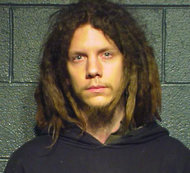Overdraft penalties represent well over half of banks’ fees from consumer checking accounts, a new report from the Consumer Financial Protection Bureau finds.
The report, based in part on confidential data provided by some of the nation’s larger banks, estimated that 61 percent of bank fees from consumer accounts were for overdrafts and insufficient funds, penalties charged when customers spent more than their accounts had available. Based on that finding, the bureau said it estimated conservatively that the banking industry earned $12.6 billion in such fees from consumers in 2011.
The report represents preliminary findings of a bureau inquiry into bank overdraft practices announced early last year. The bureau is not making any policy recommendations yet, but says it will conduct further reviews of account-level data.
The report found that overdraft protection can be very expensive for consumers and varies widely from bank to bank. Overdraft protection is a service in which the bank pays the amount in question, even though the account lacks the necessary funds, but then charges the customer a fee for doing so. The average customer overdrawing an account paid $225 in charges per year, the study found. And more than a quarter (27 percent) of checking accounts paid at least one overdraft charge in 2011.
The bureau did not identify the banks included in the report or even specify how many were included in the analysis, which also incorporated comments submitted by the public, consumer advocates and industry groups. The bureau said, however, that the banks in the study represented more than half of all deposit accounts. The bureau has supervisory authority over banks with more than $10 billion in assets, or more than 100 institutions.
Since the middle of 2010, the Federal Reserve has barred banks from charging overdraft fees for A.T.M. withdrawals or most debit card transactions unless a customer actively chooses the service. The report found that customers who accept the coverage were more likely to end up paying higher fees and were more likely to end up having their account involuntarily closed than those who did not.
“What is marketed as overdraft protection can, in some instances, put consumers at greater risk of harm,” said Richard Cordray, the bureau’s director, in prepared remarks.
Opt-in rates vary widely among banks, suggesting that bank marketing of the service plays a role. At some banks in 2011, more than 40 percent of new customers opted in, while fewer than 10 percent did so at other banks.
Mr. Cordray said the findings did not indicate that banks should not charge overdraft fees. “Nonetheless,” he said, “our findings raise concerns about the number of consumers who are incurring heavy overdraft fees or account closures, and the wide variations across institutions indicate that certain practices and procedures merit further analysis.”
Have you paid overdraft fees? Do you think new rules are necessary to regulate banks’ use of them?
Article source: http://bucks.blogs.nytimes.com/2013/06/11/banks-rake-in-overdraft-fees-report-finds/?partner=rss&emc=rss
